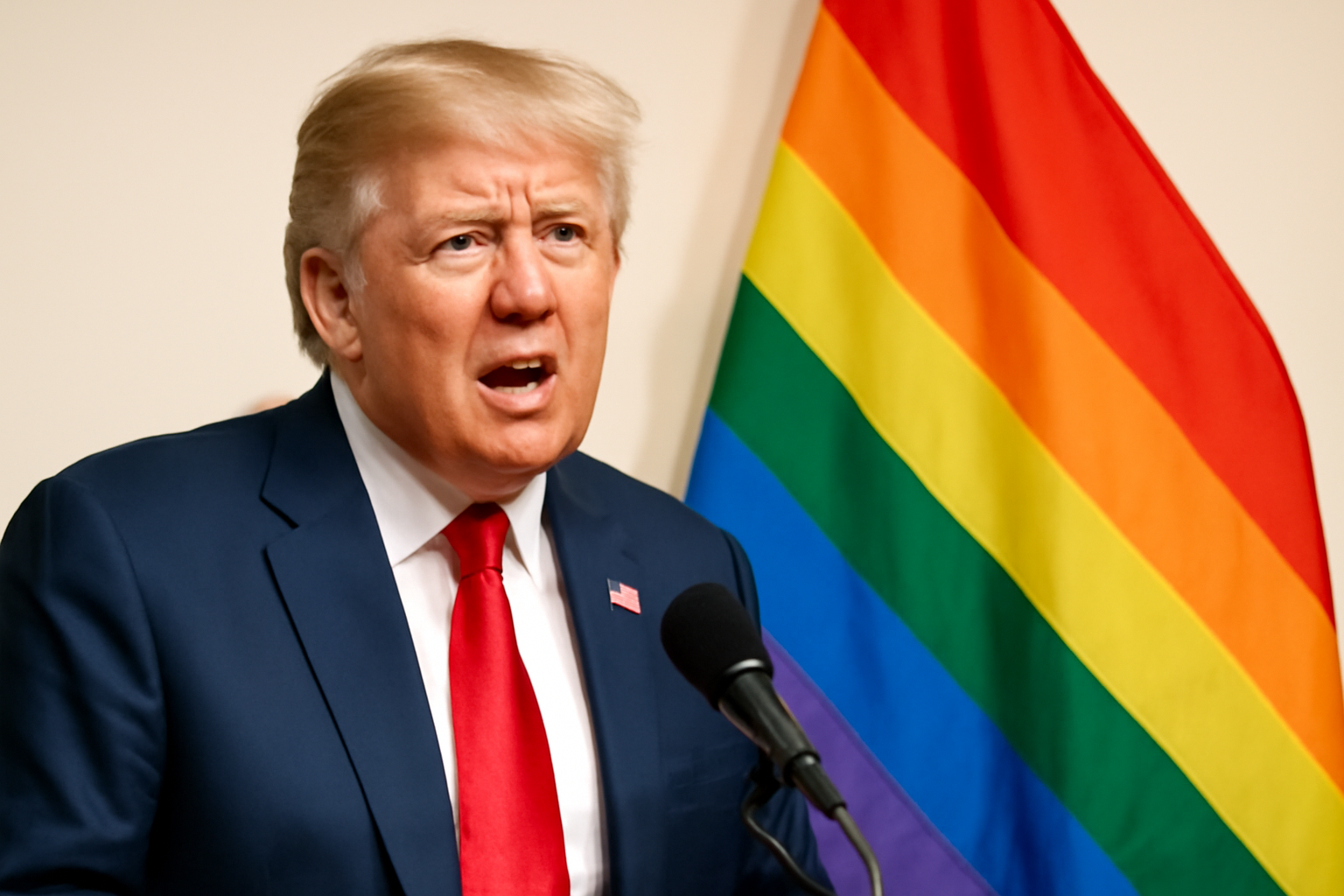
Trump's Controversial Women's History Month Speech Brings LGBTQ+ Issues to the Forefront
During a recent event at the White House celebrating Women’s History Month, former President Donald Trump took the opportunity to deliver a speech that quickly veered into controversial territory. His remarks focused heavily on gender identity and trans rights, topics that have been at the forefront of political debate in recent years.
In his speech, Trump criticized what he termed as the "radical gender ideology" purportedly being pushed by the current administration under President Joe Biden. "We had an administration that tried to abolish the very concept of womanhood," Trump declared to the audience, suggesting that trans activists were waging a "war on women."
The former president aimed to rally support by asserting that women’s spaces were being eroded and claimed that terms like "birthing people" were part of an agenda to replace traditional concepts of motherhood. However, it should be noted that such terminology has not been officially adopted by the Biden administration as a replacement for "mother," but rather used by some activist groups to be inclusive of all who give birth.
LGBTQ+ Health and Safety Concerns
Trump also addressed issues related to transgender inclusion in sports and public spaces, framing the matter as detrimental to cisgender women. "You had a war on women, and we’re protecting women’s rights," he said, reiterating a common Republican argument that trans inclusion is unfair to cis women. This narrative, however, overlooks the fact that studies, including those from the Williams Institute, have shown no correlation between trans-inclusive policies and increased safety risks.
Statistics indicate that trans individuals are more likely to be victims of violence compared to their cisgender counterparts. These figures highlight the ongoing challenges faced by the transgender community, which remains vulnerable to discrimination and violence.
Gender Identity and Executive Orders
Trump further emphasized his administration’s position by referencing an executive order that declared gender as immutable, asserting that "there are only two genders." This perspective, he claimed, is widely accepted, asking the crowd if there were any dissenters present.
His comments received applause, yet they sparked criticism from advocates and experts who argue for recognizing the complex realities of gender identity beyond binary definitions. Trump’s administration had previously taken steps to ban trans women from participating in women’s sports and to restrict access to gender-affirming care for minors, adding to the contentious discourse surrounding trans rights.
Reproductive Rights and IVF
In a surprising segue, Trump made comments on reproductive rights, alluding to potential policies involving "tremendous goodies in the bag for women." He humorously referred to himself as "the fertilization president," a phrase that raised eyebrows but seemed to delight his supporters. This comment was likely linked to an executive order he signed, which was intended to address In Vitro Fertilization (IVF) access.
However, the order fell short of its promises by merely requesting policy recommendations rather than mandating any substantive changes to expand IVF access or reduce associated costs. Critics, including Senator Tammy Duckworth, noted that the order failed to deliver on Trump’s campaign pledge to make IVF more accessible.
The issue of IVF remains a contentious one, with legal challenges and state-level rulings complicating its future. The Alabama Supreme Court’s decision to recognize frozen embryos as children, for instance, has added a layer of legal complexity that continues to impact the discourse on reproductive rights.
Impact on the LGBTQ+ Community
Trump’s speech has further polarized opinions on gender and trans rights, underscoring the ongoing political and social battles faced by the LGBTQ+ community. Understanding how these issues impact individuals and advocating for inclusive policies remain crucial as debates continue.
For those looking to stay informed about how political developments affect LGBTQ+ communities, subscribing to our newsletter offers valuable insights and updates on the latest headlines shaping these discussions worldwide.
Related Posts
Triumphant Trans Woman Wins Legal Battle and Inspires Others to Stand Up for Their Rights
Breaking new ground: a landmark victory in transgender rights After battling in courtrooms and enduring endless challenges, Diana Portillo, a transgender woman, has secured a monumental victory in her decade-long fight against workplace discrimination. The result? Nearly $1 million awarded in a historic settlement. But this isn't just a win on paper—it represents a powerful precedent in combati [...]
Pride Month in Latin America: Protests and Demands for Equality
**Celebrating Pride and advocating LGBTQ+ rights in Latin America** Pride Month in Latin America was a lively mix where celebration met activism. Communities united, not just throwing a party but making a stand—demanding equality and pushing governments toward better protection and rights recognition. Throughout Latin America, pride events erupted in marches and cultural displays, each with a c [...]
Transgender Erasure Actions Implemented by National Park Service
```html Trump administration's impact on national park service and transgender recognition The Trump administration made notable moves in undermining transgender representation, which included directing agencies like National Park Service not include "T" and "Q" when they refered “LGBTQ” in any official communication. This move seems part a broader plan by this administration aimed at reducin [...]